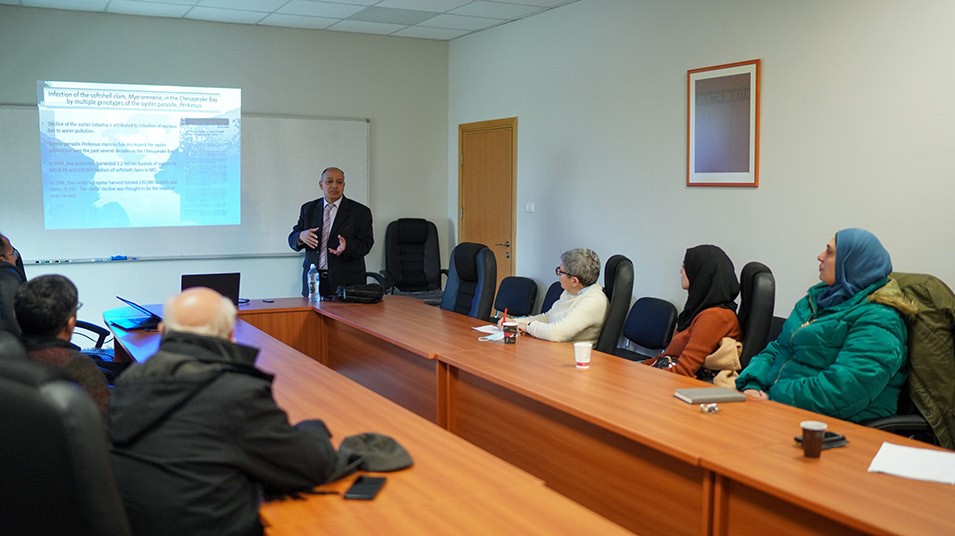Scientist Shaban Kotob discusses solutions to counter industrial pollution in public lecture
Birzeit University students and faculty members discussed solutions to mitigate the effects of increasing industrial pollution on agriculture and the overall ecosystem in a lecture hosted by the Department of Biology and Biochemistry led by Dr. Shaban Kotob, the vice president of business development at Global Biotechnology, an international development company focused on global health and safety.
Bringing over 30 years of experience in global health and food safety, Kotob discussed in the lecture the state of the environment in Palestine, highlighting the possible solutions for environmental pollution, including the use of natural agricultural fertilizers and wastewater recycling.
“Modern industries pollute the water and soil,” Kotob explained. “And the impact of such a level of pollution on agriculture and the overall ecosystem provides a significant challenge globally, and, more pertinently, in Palestine.”
After outlining the challenges that modern industrial pollution creates, Kotob went on to introduce approaches designed to counter these issues, including the use of microorganisms to combat water and soil contamination. Such microorganisms, Kotob clarified, eat up contaminants and let off carbon dioxide and water, breaking down substances that are dangerous to human health and the environment. He also emphasized the importance of using genetically modified plants to increase food production, contributing to food security globally.
Kotob is an established scientist focusing in his research on the use of DNA technology to detect human pathogens in food, drinking water, and aquatic environments. He previously held research positions at the US Food and Drug Administration (FDA), the University of Maryland and the School of Marine Science at the College of William & Mary. He has recently founded a general biotechnology laboratory in the Techno Park at Gazi University in Turkey, which focuses on laboratory design, equipment specification and procurement, SOP development and the training of local staff members.







